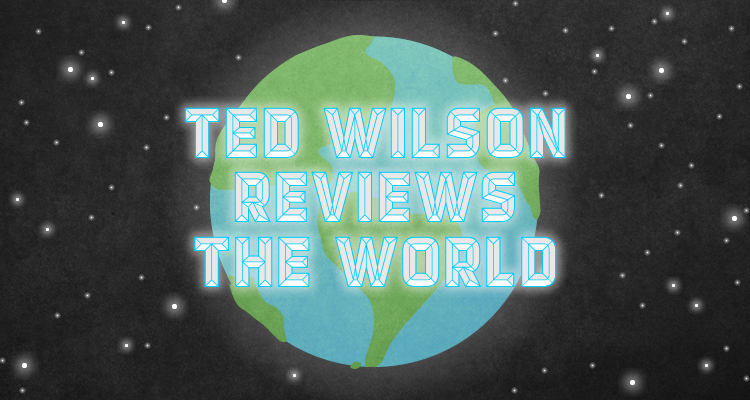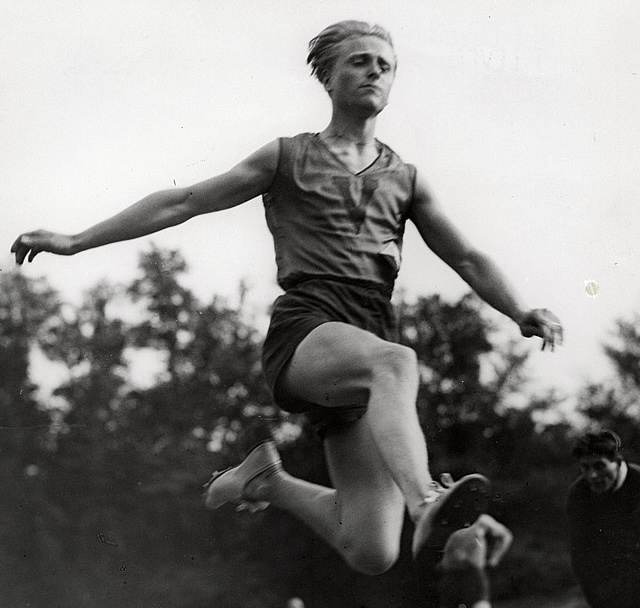interviews
Talking to NBA Legend Kareem Abdul-Jabbar About His Sherlock Holmes Novel

Though it seems we’ve had a storm of Sherlock Holmes pastiches in the post-Cumberbatch world, the fact is that the literary tradition of writing your own novel or short story set in the universe of 221B Baker Street has been happening for decades, if not nearly a century. From Neil Gaiman to Lyndsay Faye to Michael Chabon to Anthony Horowitz to Star Trek II director, Nicholas Meyer, plenty of people you’ve heard of and love have adventured into this rich fictional universe.
And now, add a NBA Hall-of-Famer onto that list, because Kareem Abdul-Jabbar has also busted into the world of Holmes. But wait! His book is not about the Holmes you might be thinking of! Sherlock’s older brother Mycroft Holmes is the title and the subject of Abdul-Jabbar’s novel, and the story is something of a prequel to the canonical Doyle tales loved by so many. I got the chance recently to correspond with this legend about his new novel. Here, Kareem Abdul-Jabbar describes his collaborative process with co-writer Anna Waterhouse, his passion for history, and how this Holmes might have a connection to…Marlon Brando?
Ryan Britt: I’ve read you’ve always been a huge fan of the Sir Arthur Conan Doyle Sherlock Holmes stories. It’s even in your bio for this book that you incorporated a kind of Holmesian method of deduction into your early strategies for playing in the NBA. How did all that enthusiasm for these stories lead you to this novel? What’s the leap between fan of these stories and novelist?
Kareem Abdul-Jabbar: My manager, Deborah Morales, has been hearing about Mycroft Holmes for so long that she finally said “You have to do it.” Anna Waterhouse, my co-writer, worked with me on my award-winning documentary, “On the Shoulders of Giants,” and I knew we could work well together. Her background is screenwriting, so I knew both the dialogue and the setting would be right. I had a story in mind: we fleshed it out, and that was that. The leap between fan and novelist is a whole lot more work.
My manager, Deborah Morales, has been hearing about Mycroft Holmes for so long that she finally said “You have to do it.”
Britt: The historical detail in this book is extraordinary. Short of time-travel, can you describe your research process?
Abdul-Jabbar: I’m passionate about history. I’m particularly fond of the Victorian era, because it was a time when one superpower (Britannia) ruled the waves — and therefore the world. We wanted to be sure that readers felt, heard and even smelled what it was like to live back then. But we also wanted to make sure those descriptions never interfered with plot. That was a tightrope walk, frankly. We left more out than we put in. So I’d say we had a good two months of intense research before we even began the prologue. Most was just hitting the books, but more than some was serendipity. One fact would lead to another that was just as necessary, only later on in the novel. Thankfully, we stayed organized.
Britt: Now, as the title clearly gives away, this novel centers on Mycroft Holmes — the brother of Sherlock — as a young man. But Mycroft is in or mentioned in four of the original stories. We know he’s supposed to be just as smart as Sherlock, if not smarter, but other details are scarce. Did you feel as though you were inventing your own character here?
Abdul-Jabbar: We don’t feel we invented him, no. Because of my respect for ACD, we made a conscious effort to make him plausibly Doyle’s Mycroft Holmes as a very young man. In other words, we took all the written characteristics (or what little there is) into consideration, and we posited the rest. It’s been interesting to hear the results from those who’ve read the book. A few (thankfully, very few so far) think he is “nothing like” Mycroft would have been at that age, while most readers, including devotees of ACD, have been quite kind and even complimentary about what we’ve done with “their” Mycroft Holmes.
Because of my respect for ACD, we made a conscious effort to make him plausibly Doyle’s Mycroft Holmes as a very young man.
Britt: Right for the start Mycroft’s athleticism and physical prowess are on display. Did you feel like you got to write a sort of buffer, more badass Sherlock Holmes?
Abdul-Jabbar: No, I think Robert Downey Jr. has cornered the market on that. More seriously, though, Mycroft is not “Detective Number Two.” He’s not “the game’s afoot!” Junior. He’s an entirely different character with different motivations. While Sherlock has to wait until a crime happens, and then go after the bad guy(s), Mycroft is much more interested in preventing larger-scale crimes before they happen. He’s already more of a Machiavelli, and will become even more so, if we’re given the chance to keep writing about him.
As for buff and badass: because Doyle depicts Mycroft, in his mid-forties, as overweight and sedentary, we wanted to see if we could get to him before life (tragedies and gravity) had their way. In other words, there’s young Marlon Brando and there’s old Marlon Brando. We thought to write about young Marlon Brando.
Britt: The character of Cyrus Douglas seems to be of your own creation. Did you consciously create him as a kind of Watson-analog?
Abdul-Jabbar: Anna and I knew that Mycroft would need a confidante. But we didn’t want him to be just a guy who asks the questions so that the plot can be explained to the audience. We wanted someone who was fully his own man. So we made him older than Mycroft (Douglas is 40, Holmes is 23) and black, specifically because Mycroft Holmes has been rather sheltered and has never lived anywhere but England. We wanted to match him up with someone worldly, and with a whole different set of experiences. We also wanted a character who could be the moral center. Cyrus Douglas fit the bill.
Britt: Mycroft being in love is central to this novel. This seems like a tricky move in writing about the traditionally cold and intellectual Holmes boys. Without ruining anything for those who haven’t read it; how does Mycroft being in love with Georgiana impact this calculating, logical, reasoning machine?
Abdul-Jabbar: It impacts him in the way that it would impact anyone experiencing his first big love. It messes with the synapses. The brain takes a back seat to the emotions. Otherwise known as a blind spot.
It impacts him in the way that it would impact anyone experiencing his first big love…The brain takes a back seat to the emotions.
Britt: There’s been countless film and television versions of these adventures, but not a lot where the ethnicity of Sherlock Holmes or his friends has been changed from the source material. (Lucy Liu’s Watson on Elementary is an obvious exception.) However, there are of course, black versions of Holmes and Watson in other media; the graphic novel Watson & Holmes by Karl Bollers and Rick Leonardi is a good example. If something like Watson & Holmes were adapted to film or TV would you want to play someone? Maybe Mycroft?
Abdul-Jabbar: I would never turn down a part that sounds like fun, and of course that sounds like fun. But I’m a purist, in that I do think the middle-aged Mycroft Holmes should bear at least a passing resemblance to the way Arthur Conan-Doyle described him. And that wouldn’t be me.
Mycroft Holmes is out now from Titan Books.









